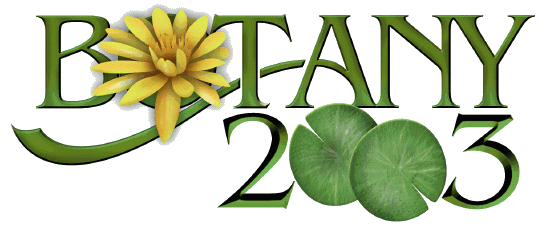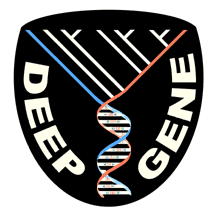 |
Aquatic
and Wetland Plants: Wet & Wild 26-31 July 2003
|
|
W-3 Getting to the Roots of Plant Evolution: Genomics and the Reconstruction Tree of Life FREE Sunday, 8 am - 12 pm Presenter: Brent Mishler Target Audience: High School Teachers & Faculty and
Graduate Students Enrollment Limit: 25 |

|
|
Phylogenetic analyses using
molecular and morphological data have yielded stunning results about the tree
of life and how all organisms on earth are related to each other. The use of
phylogenetic methods to understand evolutionary history has become a common
theme throughout science. Understanding the concepts and basic methodology of
these relatively new techniques is an important component of science education
at the high school and undergraduate college levels. This workshop will provide an introduction to phylogenetic methods
using examples from the green plants.
Using material that is easily accessible nationwide, we will conduct a
hands on demonstration of a classroom exercise appropriate for grades 9 - 12
and introductory biology classes at the university level. Using a simple phylogenetic analysis with
morphological and genomic data, we will explore the evolutionary relationships
of land plants. Results will be used to
discuss adaptation to life on land, radiation of the angiosperms, molecular evolution,
and the new classification of green plants. This workshop will provide a foundation for students to (1)
conduct a scientific investigation by collecting, categorizing, and analyzing
data, (2) read and analyze data summarized in a cladogram, and (3) understand
basic evolutionary concepts such as adaptation, diversification, symbiosis, and
convergent evolution. Sponsored by the National Science Foundation (Grant DEB-0090227), The Deep Gene Research Coordination Group exists to integrate green plant phylogenetics and genomics. The group is exploring ways in which comparative phylogenetic studies can inform functional genomic studies, and knowledge of plant genomes can inform the understanding of phylogenetic relationships. For more information, please visit our web site (http://ucjeps.herb.berkeley.edu/bryolab/deepgene/).
Questions- Contact: Botany 2003
|
|